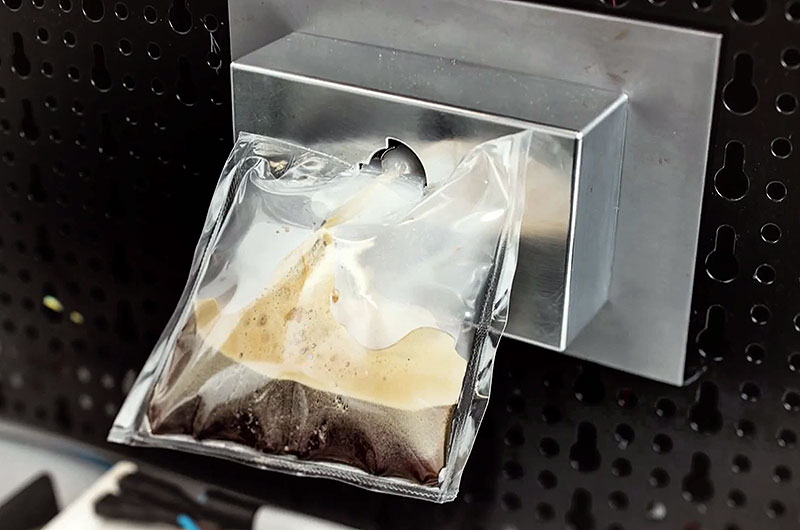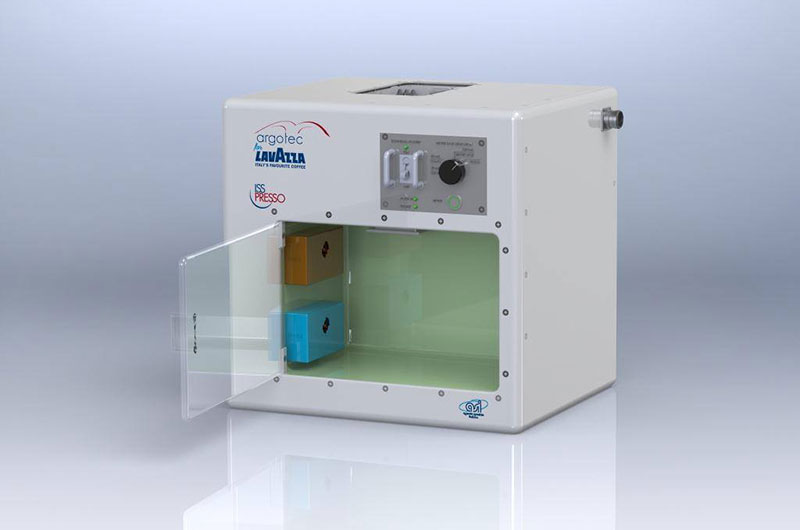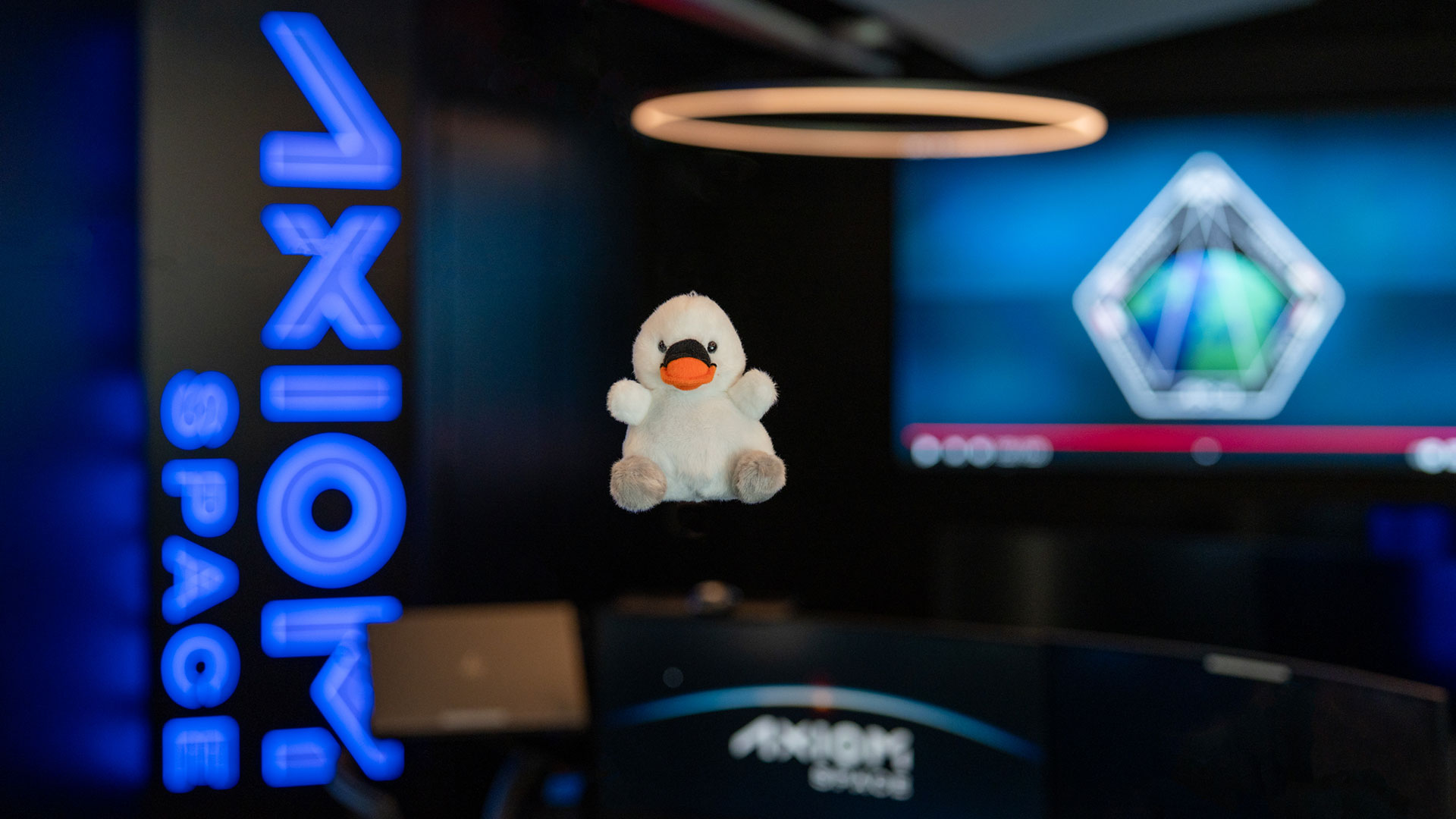Rocket Fuel: How Astronauts Will Brew the Perfect Espresso in Space

Need a caffeine hit in space? For astronauts on the International Space Station, it will take less than two minutes to brew an espresso in a coffee machine slated for launch next year.
The so-called "ISSpresso" machine is expected to launch to the station aboard Orbital Sciences' fifth resupply flight using the Cygnus spacecraft and Antares rocket in early 2015. And once it's installed, astronauts will only need to push a button to get coffee.
While the machine is best known as an espresso maker, it's also possible to brew other types of coffee or even rehydrate food with the device, the co-manufacturer told Space.com. But it took 18 months of intensive work to get to this point. [Watch a video about the space station espresso machine]
"The design and the entire system was built from scratch, because [compared to] a regular coffee machine working on Earth, there are a lot of safety requirements," said David Avino, the managing director of engineering and software company Argotec. Lavazza, an Italian coffee maker, also participated in the design.
Avoiding burns
Those requirements included finding a way to keep the hot water inside the machine after the espresso is finished. While water residue is normal in Earth-bound espresso machines, the prospect of boiling-hot bubbles seeping from the device in microgravity forced Argotec to seek a solution.
Argotec has kept its exact solution under wraps as the company applies for patents, but in general terms, a small container in the machine collects the water. Also, stainless steel has replaced the usual plastic tubing inside the device, making it more resistant of pressures of up to 400 bars.
Get the Space.com Newsletter
Breaking space news, the latest updates on rocket launches, skywatching events and more!
Argotec partly bills the device as a tool for the astronauts, but also a way for the company to experiment with designs that could improve coffee drinkers' lives on Earth. Astronauts will be able to watch the foam being applied inside the machine, for example.
The company is also interested in how the coffee brewing performs in microgravity, as the makers haven't had the chance to test that out yet.
And we have brew-off

Astronauts can operate the device with only the push of a button. An astronaut will take a pouch of water from the station's room-temperature potable system, about 8.4 ounces' (250 milliliters) worth. Those who like sweet coffee can add a dash of sugar to the mix.
Next, crew members will select how much coffee they want, insert a capsule in the top of the machine and press "brew." It takes the device 60 seconds to heat the water to 167 degrees Fahrenheit (75 degrees Celsius), then 40 seconds to dispense the espresso.
The coffee will spew out into a pouch, ready for the astronaut to drink. And if there's a lineup, the company says the machine can easily make a second serving in the same time, about 40 seconds.
ISSpresso is in final testing right now, but if all goes to schedule it should be available on the International Space Station in time for the Expedition 42 flight of Samantha Cristoforetti, a European Space Agency astronaut from Italy. She is expected to go to space in November.
"How cool is that?" Cristoforetti wrote on Twitter. "I'll get to operate the first space espresso machine!"
Follow Elizabeth Howell @howellspace. Follow us @Spacedotcom, Facebook and Google+. Original article on Space.com.
Join our Space Forums to keep talking space on the latest missions, night sky and more! And if you have a news tip, correction or comment, let us know at: community@space.com.

Elizabeth Howell (she/her), Ph.D., was a staff writer in the spaceflight channel between 2022 and 2024 specializing in Canadian space news. She was contributing writer for Space.com for 10 years from 2012 to 2024. Elizabeth's reporting includes multiple exclusives with the White House, leading world coverage about a lost-and-found space tomato on the International Space Station, witnessing five human spaceflight launches on two continents, flying parabolic, working inside a spacesuit, and participating in a simulated Mars mission. Her latest book, "Why Am I Taller?" (ECW Press, 2022) is co-written with astronaut Dave Williams.
